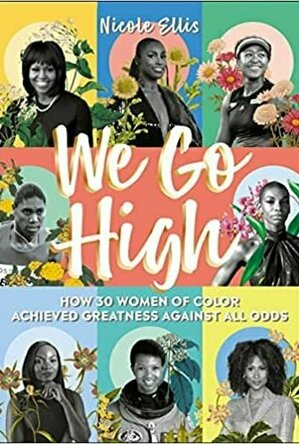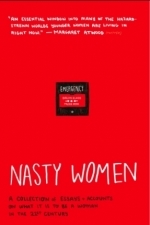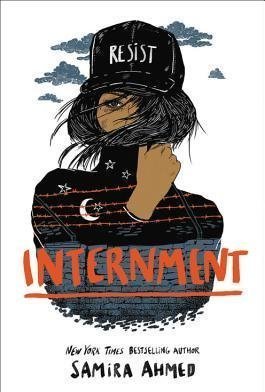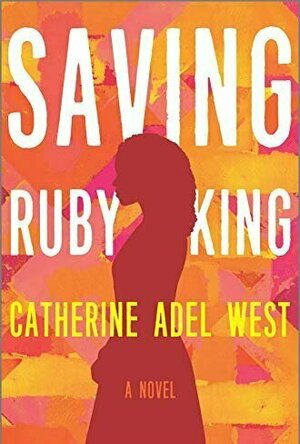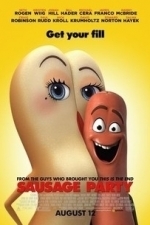Search
Search results
Ali A (82 KP) rated We Go High: How 30 Women of Color Achieved Greatness Against All Odds in Books
Jul 28, 2022
Trigger Warnings: Racism, colorism, misogyny, sexism, violence, transphobia, homophobia, gun violence, mentions of drug and alcohol addiction, sexual assault, sexual violence, bullying, suicidal thoughts, suicide attempt, religious bigotry *
*The author has marked biographies at the beginning of the novel with * to indicate profiles that detail trigger experiences
From activists to sporting icons, bakers to scientists, journalists to actresses’, We Go High tells the stories of 30 influential women of color who have strived to overcome challenges in their lives. Paired together with stunningly beautiful portraits from Natasha Cunningham, Nicole Ellis celebrates these women of color’s achievements as well as their personal beliefs, attitudes, and determination that drives them to be remarkable.
I loved all the different types of women and their stories that were given in mini biographies - there were a lot of details given in the short amount of pages. This works great because this book is aimed for a younger audience (middle grade/young adult) that opens the door for more research to dive into.
I have known about 90% of the women mentioned in this book, but there were a handful of them I didn’t know. Such as Dr. Kissmekia Corbett, or Kizzy Corbett, who was a leading viral immunologist to help create the Moderna Covid-19 vaccine. Or Sônia Guajajara, a Brazilian Indigenous activist, environmentalist, and politician.
Overall, I feel like this is an amazing book about amazing women of color for those of all ages to enjoy, though especially those in middle or high school as a stepping stone to further research and knowledge.
*The author has marked biographies at the beginning of the novel with * to indicate profiles that detail trigger experiences
From activists to sporting icons, bakers to scientists, journalists to actresses’, We Go High tells the stories of 30 influential women of color who have strived to overcome challenges in their lives. Paired together with stunningly beautiful portraits from Natasha Cunningham, Nicole Ellis celebrates these women of color’s achievements as well as their personal beliefs, attitudes, and determination that drives them to be remarkable.
I loved all the different types of women and their stories that were given in mini biographies - there were a lot of details given in the short amount of pages. This works great because this book is aimed for a younger audience (middle grade/young adult) that opens the door for more research to dive into.
I have known about 90% of the women mentioned in this book, but there were a handful of them I didn’t know. Such as Dr. Kissmekia Corbett, or Kizzy Corbett, who was a leading viral immunologist to help create the Moderna Covid-19 vaccine. Or Sônia Guajajara, a Brazilian Indigenous activist, environmentalist, and politician.
Overall, I feel like this is an amazing book about amazing women of color for those of all ages to enjoy, though especially those in middle or high school as a stepping stone to further research and knowledge.
Eilidh G Clark (177 KP) rated Nasty Women in Books
May 13, 2017
Nasty women is hard-hitting, eye-opening, and unashamedly honest.
‘Sometimes the role model you need is not an example to aspire to, but someone who reflects back the parts of yourself that society deems fit.’ -
Becca Inglis
Nasty Women, published by 404 ink, is a collection of essays about what it is, and how it feels to be a woman in the 21st century. When I first picked up the book, I assumed, like I think most readers would, that it would be an easy book to just pick up and put down whenever I had a spare ten minutes. Wrong, I was sucked into this book right from the beginning, and read it all in a day. That doesn’t mean it was an easy read, or perhaps easy is the wrong word – it isn’t a comfortable read - and it isn’t meant to be. Nasty women is hard-hitting, eye-opening, and unashamedly honest.
The book opens with ‘Independence Day’ by Katie Muriel. A story of mixed race and identity in Trump’s America, Muriel discusses her experience of inter-family racism, heightened by political differences, ‘This is not the first, nor is it the last family divide Trump will leave in his wake, but I refuse to think of him as some deity who stands around shifting pieces on a board in his golden war room.’ The anger in this piece is clear, but it is the rationalism and clarity of the writer that speaks volumes. Race, racism and xenophobia, is a prominent feature in these stories. Claire L. Heuchan, for example, talks about ‘Othering’ a term that readers will see repeatedly in this book, ‘Scotland,’ she writes, ‘is a fairly isolating place to be a black woman.’
Survival is a key trope in Nasty Women. Mel Reeve, in ‘The Nastiness of Survival,’ talks about being a survivor of rape and emotional abuse, ‘I do not fit the ‘right’ definition of someone who has been raped.’ This statement alone is filled with irony.
I was particularly drawn to Laura Waddell’s essay, ‘Against Stereotypes: Working Class Girls and Working Class Art.’ Laura talks about the difficulty of both gender and class inequality, and, in particular, the lack of working class writers and working class fiction being published, ‘I have read a lot of fiction’ she says, ‘I have read almost none from housing estates such as the one I grew up on. These stories are missing, from shelves, and from the record.’ As a Scottish fiction writer from a working-class background myself, these words resonate deeply.
Alice Tarbuck’s ‘Foraging and Feminism: Hedge-Witchcraft in the 21st Century’, is almost fun to read in a deeply devastating way. There is a desperate tone in this piece, and a desperate need to escape society. ‘There is beauty and bounty around us if we look for it, and perhaps that is all the magic we need. Or perhaps, what we need is real magic, whether that comes in the form of resistance and community or the form of blackthorn charms and skullcap tinctures, and howling to the moon.
I loved this book. This book gives women a voice. And it is loud! Well done 404 Ink, and all the contributors, for bravely breaking the silence.
Becca Inglis
Nasty Women, published by 404 ink, is a collection of essays about what it is, and how it feels to be a woman in the 21st century. When I first picked up the book, I assumed, like I think most readers would, that it would be an easy book to just pick up and put down whenever I had a spare ten minutes. Wrong, I was sucked into this book right from the beginning, and read it all in a day. That doesn’t mean it was an easy read, or perhaps easy is the wrong word – it isn’t a comfortable read - and it isn’t meant to be. Nasty women is hard-hitting, eye-opening, and unashamedly honest.
The book opens with ‘Independence Day’ by Katie Muriel. A story of mixed race and identity in Trump’s America, Muriel discusses her experience of inter-family racism, heightened by political differences, ‘This is not the first, nor is it the last family divide Trump will leave in his wake, but I refuse to think of him as some deity who stands around shifting pieces on a board in his golden war room.’ The anger in this piece is clear, but it is the rationalism and clarity of the writer that speaks volumes. Race, racism and xenophobia, is a prominent feature in these stories. Claire L. Heuchan, for example, talks about ‘Othering’ a term that readers will see repeatedly in this book, ‘Scotland,’ she writes, ‘is a fairly isolating place to be a black woman.’
Survival is a key trope in Nasty Women. Mel Reeve, in ‘The Nastiness of Survival,’ talks about being a survivor of rape and emotional abuse, ‘I do not fit the ‘right’ definition of someone who has been raped.’ This statement alone is filled with irony.
I was particularly drawn to Laura Waddell’s essay, ‘Against Stereotypes: Working Class Girls and Working Class Art.’ Laura talks about the difficulty of both gender and class inequality, and, in particular, the lack of working class writers and working class fiction being published, ‘I have read a lot of fiction’ she says, ‘I have read almost none from housing estates such as the one I grew up on. These stories are missing, from shelves, and from the record.’ As a Scottish fiction writer from a working-class background myself, these words resonate deeply.
Alice Tarbuck’s ‘Foraging and Feminism: Hedge-Witchcraft in the 21st Century’, is almost fun to read in a deeply devastating way. There is a desperate tone in this piece, and a desperate need to escape society. ‘There is beauty and bounty around us if we look for it, and perhaps that is all the magic we need. Or perhaps, what we need is real magic, whether that comes in the form of resistance and community or the form of blackthorn charms and skullcap tinctures, and howling to the moon.
I loved this book. This book gives women a voice. And it is loud! Well done 404 Ink, and all the contributors, for bravely breaking the silence.
Goddess in the Stacks (553 KP) rated Internment in Books
Jul 25, 2019
This book should be required reading in schools. Especially now. It could be paired with Anne Frank. One history, one a possible future. Probable, even. Depending on how you look at it, an actual present. We DO have concentration camps on the border. (Which makes me shudder to write, what in the absolute FUCK.)
*breathes deeply*
Internment is a gut-punch of a book. I had to set it down two pages in and get control of myself, and again around page eleven. I took breaks throughout reading it to do HOUSEWORK, of all things, because I needed the mental and emotional reprieve. And I'm a white woman. I have the privilege of being pretty sure I will never be the target of these kinds of atrocities. Which means I have the responsibility to work against them. I'm also a physically weak, chronic-illness-having, unemployed white woman, (which does have the benefit of letting me keep on eye on my middle-eastern neighbors' houses to watch for ICE showing up - I fully intend to go make myself a damned nuisance if they do) so I can't go storm the camps or march for hours at protests. What I can do is boost books like this.
If you're white, GO READ THIS BOOK. Suck it up and read it. I don't have the same recommendation for my friends of color because they already live with this kind of fear and racism. They don't need it illustrated to them. WE DO.
This book needs content warnings for violence, threats of rape, anxiety-inducing situations, racism, violent death - Samira Ahmed does NOT pull punches. Direct resistance is costly. It takes courage and sacrifice, and she does not shy away from showing that. It would be sugar-coating if she did.
Internment focuses on the idea of America forcing citizens into camps - but we are already forcing non-citizens into camps. The Red Cross visits the camp, not unlike our politicians visiting the immigrant concentration camps on our border now. They have a garden they can work on in the camp - not unlike a pair of photos I saw on Twitter. (see blog for photos.)
Internment is stunning, heartbreaking, and inspiring, and if you're emotionally capable of it, YOU SHOULD READ IT. This is happening, right now, on our southern border. It is infuriating that our politicians have not put a stop to it yet. My own Congressman (I just moved into this area, I haven't had a chance to vote on him yet) just visited the camps, and his Twitter thread on them is SO CAREFUL to use absolutely neutral language when talking about them, and it pisses me off. This is NOT a neutral subject.
Internment did have a few downsides - the Director never gets a name (though the book is told from Layla's viewpoint, and it would not surprise me if he never bothered to GIVE his name to the internees) and he's almost cartoonishly evil. I would have liked to know more about the guard that helped Layla on occasion, but again, told as it was from her viewpoint, it can be excused by saying she simply didn't know more about him. But this IS a Young Adult novel told from a seventeen-year-old's viewpoint. We're only going to get what she knows and feels. So these downsides don't detract from the book for me.
To sum up - I recommend Internment at the highest level. You absolutely must read this book.
You can find all my reviews and more at http://goddessinthestacks.com
*breathes deeply*
Internment is a gut-punch of a book. I had to set it down two pages in and get control of myself, and again around page eleven. I took breaks throughout reading it to do HOUSEWORK, of all things, because I needed the mental and emotional reprieve. And I'm a white woman. I have the privilege of being pretty sure I will never be the target of these kinds of atrocities. Which means I have the responsibility to work against them. I'm also a physically weak, chronic-illness-having, unemployed white woman, (which does have the benefit of letting me keep on eye on my middle-eastern neighbors' houses to watch for ICE showing up - I fully intend to go make myself a damned nuisance if they do) so I can't go storm the camps or march for hours at protests. What I can do is boost books like this.
If you're white, GO READ THIS BOOK. Suck it up and read it. I don't have the same recommendation for my friends of color because they already live with this kind of fear and racism. They don't need it illustrated to them. WE DO.
This book needs content warnings for violence, threats of rape, anxiety-inducing situations, racism, violent death - Samira Ahmed does NOT pull punches. Direct resistance is costly. It takes courage and sacrifice, and she does not shy away from showing that. It would be sugar-coating if she did.
Internment focuses on the idea of America forcing citizens into camps - but we are already forcing non-citizens into camps. The Red Cross visits the camp, not unlike our politicians visiting the immigrant concentration camps on our border now. They have a garden they can work on in the camp - not unlike a pair of photos I saw on Twitter. (see blog for photos.)
Internment is stunning, heartbreaking, and inspiring, and if you're emotionally capable of it, YOU SHOULD READ IT. This is happening, right now, on our southern border. It is infuriating that our politicians have not put a stop to it yet. My own Congressman (I just moved into this area, I haven't had a chance to vote on him yet) just visited the camps, and his Twitter thread on them is SO CAREFUL to use absolutely neutral language when talking about them, and it pisses me off. This is NOT a neutral subject.
Internment did have a few downsides - the Director never gets a name (though the book is told from Layla's viewpoint, and it would not surprise me if he never bothered to GIVE his name to the internees) and he's almost cartoonishly evil. I would have liked to know more about the guard that helped Layla on occasion, but again, told as it was from her viewpoint, it can be excused by saying she simply didn't know more about him. But this IS a Young Adult novel told from a seventeen-year-old's viewpoint. We're only going to get what she knows and feels. So these downsides don't detract from the book for me.
To sum up - I recommend Internment at the highest level. You absolutely must read this book.
You can find all my reviews and more at http://goddessinthestacks.com
Kristy H (1252 KP) rated Saving Ruby King in Books
Jun 18, 2020
Ruby King is twenty-four-years-old when her mother, Alice, is found murdered in the home she shared with Ruby and Ruby's father, Lebanon. The police show little interest in--to them--another death in the King's black neighborhood, but Alice's death unhinges Ruby and leaves her alone with her violent, abusive father. Her only confidante is her best friend, Layla, who knows how long Alice and Ruby have suffered under Lebanon's wrath. But Layla is angry that Ruby won't do more to get away from Lebanon and she's even angrier at her father, a pastor, who has been close to Lebanon all these years, and yet never did anything to free Alice or Ruby from his abuse. Layla is determined to save Ruby, but as she works to rescue her friend, she starts to uncover a world of secrets and lies flowing back generations.
"I'm stitched together by the lies I tell myself and the lies people want to believe about me." ~Alice
I found this excellent and timely book to be incredibly well-written, with a power and tenderness to it that goes far behind your typical debut novel (I had to double check that this was actually West's first novel, I was so impressed).
West tells her story from a variety of points of view--Ruby; her late mother, Alice; her father, Lebanon; her best friend, Layla; Layla's father, a pastor; and more. We even hear from a central figure in all of these characters' lives--their church, via its omnipresent voice. The plot spans generations, with West giving a nuanced look at each of her complex characters. She does an amazing job of showing the power of family, for both good and bad. How choices can affect generations: one person's bad decisions can pass poison on, with children reliving dysfunction and sins.
"How can there be a me without her?" ~Ruby
No one is simply good or bad here, though Lebanon is not an easy-to-like man. Abused and neglected by his own parent, Sara, we see how Sara's neglect has turned Lebanon hard. But West is such a good writer that Lebanon is not a one-dimensional bad guy, as much as you want to hate him. I was incredibly impressed at how she could create sympathy for so many of her players, even when they did despicable things.
"Without Sara, who do I blame for...being me? Are children supposed to forgive their parents for the horrible things they've done?" ~Lebanon
This novel does an impressive job at delving into racism, domestic abuse, and sexual assault and trauma. The city of Chicago appears as its own character, springing to life via West's lovely prose. She expertly shows the difficulties black people face on the south side (and in general). I read this book during George Floyd's murder and found myself highlighting passages about police brutality that just hit me right in the gut. It's very powerful.
West's book features a variety of characters--they can be hard to keep track of at first, and I was glad to have the family tree in the beginning of the book. A few times the plot felt repetitious and the middle dragged a bit, but it picked up in the second half. There's a surprising amount of twists and turns. Overall, this is a realistic look at racism and domestic violence, but also friendship. It's quite well-written and layered with a twinge of hope throughout. I can't wait to see what West writes next. 4+ stars.
"I'm stitched together by the lies I tell myself and the lies people want to believe about me." ~Alice
I found this excellent and timely book to be incredibly well-written, with a power and tenderness to it that goes far behind your typical debut novel (I had to double check that this was actually West's first novel, I was so impressed).
West tells her story from a variety of points of view--Ruby; her late mother, Alice; her father, Lebanon; her best friend, Layla; Layla's father, a pastor; and more. We even hear from a central figure in all of these characters' lives--their church, via its omnipresent voice. The plot spans generations, with West giving a nuanced look at each of her complex characters. She does an amazing job of showing the power of family, for both good and bad. How choices can affect generations: one person's bad decisions can pass poison on, with children reliving dysfunction and sins.
"How can there be a me without her?" ~Ruby
No one is simply good or bad here, though Lebanon is not an easy-to-like man. Abused and neglected by his own parent, Sara, we see how Sara's neglect has turned Lebanon hard. But West is such a good writer that Lebanon is not a one-dimensional bad guy, as much as you want to hate him. I was incredibly impressed at how she could create sympathy for so many of her players, even when they did despicable things.
"Without Sara, who do I blame for...being me? Are children supposed to forgive their parents for the horrible things they've done?" ~Lebanon
This novel does an impressive job at delving into racism, domestic abuse, and sexual assault and trauma. The city of Chicago appears as its own character, springing to life via West's lovely prose. She expertly shows the difficulties black people face on the south side (and in general). I read this book during George Floyd's murder and found myself highlighting passages about police brutality that just hit me right in the gut. It's very powerful.
West's book features a variety of characters--they can be hard to keep track of at first, and I was glad to have the family tree in the beginning of the book. A few times the plot felt repetitious and the middle dragged a bit, but it picked up in the second half. There's a surprising amount of twists and turns. Overall, this is a realistic look at racism and domestic violence, but also friendship. It's quite well-written and layered with a twinge of hope throughout. I can't wait to see what West writes next. 4+ stars.
Daniel Boyd (1066 KP) rated Sausage Party (2016) in Movies
Jul 20, 2017
Funny voiceovers (1 more)
Classic Seth Rogen humour
Wasted potential (1 more)
The animators were treated poorly
Comfort Food
Based on the trailer I had high expectations going in, but really this movie is exactly what you expect it to be. The humour ticks all of the boxes that you would expect it to, casual racism, crass sex jokes, low brow sexism and drug induced illusions, the only difference that these feature in this movie to all of Seth Rogen’s other movies is that they are animated in this instance. If you switch off your brain and all you are looking for is a silly comedy then there is a good time to be had here and I did enjoy my time with this movie, but I can’t help but feel that there was also a lot of wasted potential here. I expected to have sore sides from laughing during this film and I only laughed out loud twice in the cinema and to be honest any less than three belly laughs during a Seth Rogen movie is underwhelming for me. Maybe I am being harsh, plus I was quite ill when I saw the movie so maybe if I went back and watched it again while feeling better I would have a better time. Like I said up top, if all you need is a quick fix of immature, shameless humour then you will enjoy this movie for what it is, but there could have been more done with this project and I’m a little bit let down that it couldn’t live up to its full potential.
